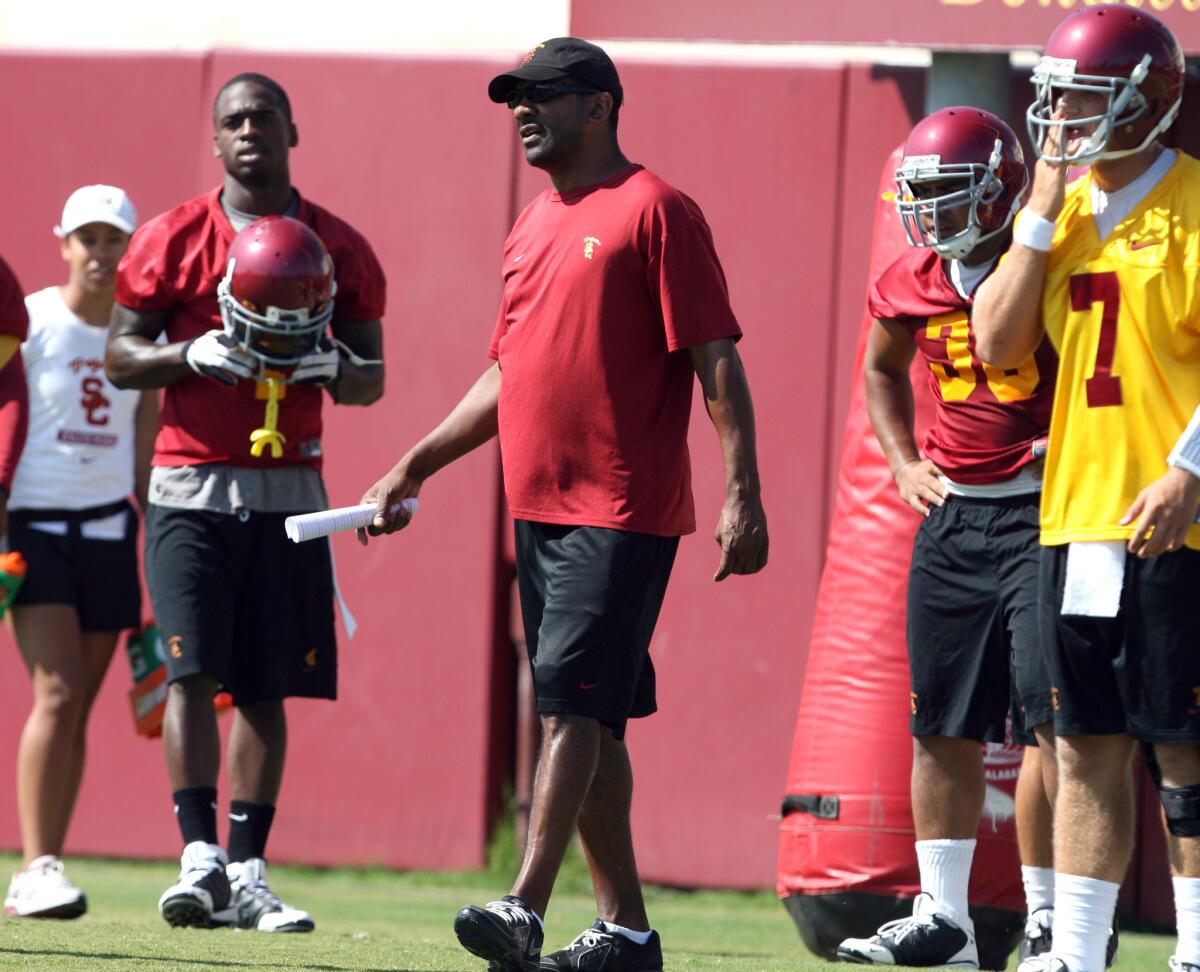Court rules NCAA can’t seal Todd McNair documents

The NCAA can’t seal hundreds of pages of internal emails and other documents in the defamation lawsuit filed against it by former USC running backs coach Todd McNair, the California 2nd District Court of Appeal ruled Friday.
The three-justice panel dismissed NCAA arguments that not sealing the documents would hinder investigations by the organization.
“We are not convinced by the NCAA’s contention that public disclosure of its documents will make future investigations more difficult for the NCAA to conduct,” the 16-page opinion said.
But the estimated 400 pages of material aren’t likely to become public anytime soon.
The NCAA can petition the appellate court for a rehearing as well as take the matter to the California Supreme Court.
In the meantime, the appellate court ordered the documents returned to the NCAA. The organization will have to decide which documents to refile -- and make public -- in support of its case.
Stacey Osburn, a spokesperson for the NCAA, released this statement:
“The NCAA remains fully committed to its obligation to member schools, student-athletes, and third-parties to protect the confidentiality of the infractions process. As such we are considering our options in light of the court’s decision.”
McNair’s attorneys didn’t respond to a request for comment.
The long-running legal action dates to 2011, when McNair sued the NCAA after being penalized in connection with the investigation of former USC running back Reggie Bush.
Los Angeles Superior Court Judge Frederick Shaller wrote in November 2012 that the documents the NCAA conditionally filed under seal “tend to show ill will or hatred.” Shaller also described the NCAA’s investigation as “over the top” and “malicious.”
The Los Angeles Times and New York Times had asked the appellate court to make the documents public.
“I think this is a reiteration that what happens in court is public,” said Thomas Burke, an attorney who represented the newspapers in the case.
In Friday’s opinion, the justices noted that NCAA bylaws do “not bind the courts” and none of them “provide the one-size-fits-all cloak of confidentiality” in investigations sought by the organization. The justices later pointed out that the “NCAA is neither a part of our judicial system nor of our law enforcement apparatus.”
The NCAA expressed concern in court filings and during an October oral argument in front of the appellate court that potential witnesses might not cooperate with the organization if investigative records weren’t kept confidential.
The justices disagreed.
“It is also just as likely that witnesses would be encouraged to give specific examples of their concerns rather than to gossip,” the opinion said.
Laura Wytsma, representing the NCAA, told the court during the October hearing that the organization wasn’t trying to obscure “wrongful conduct.”
“The NCAA has been as transparent as it can be on this one,” she said.
The justices, however, said in the opinion that the NCAA didn’t demonstrate that its interest in keeping investigations secret overrode “the constitutional right of access and the presumption of openness.”
A hearing in McNair’s lawsuit, which has been on hold pending the outcome of the appeal, is scheduled for May 14 in L.A. Superior Court.
More to Read
Go beyond the scoreboard
Get the latest on L.A.'s teams in the daily Sports Report newsletter.
You may occasionally receive promotional content from the Los Angeles Times.







